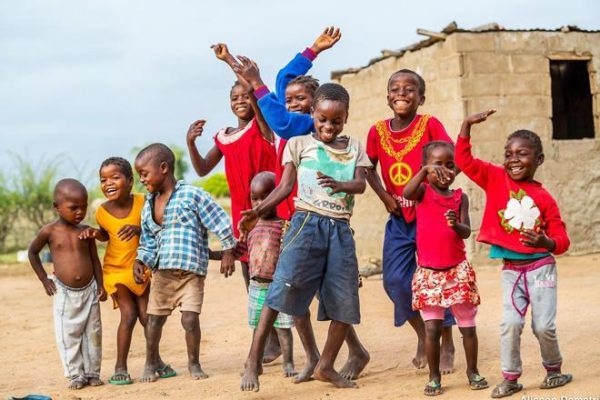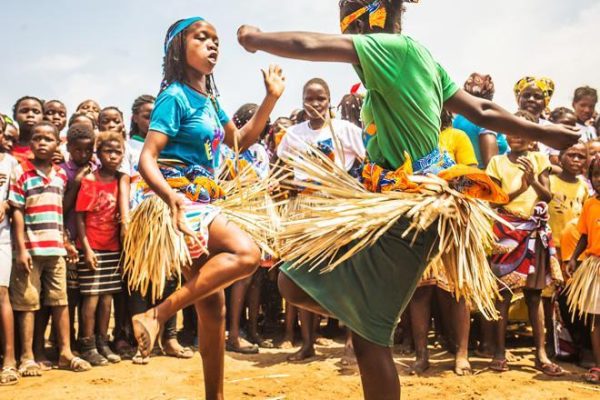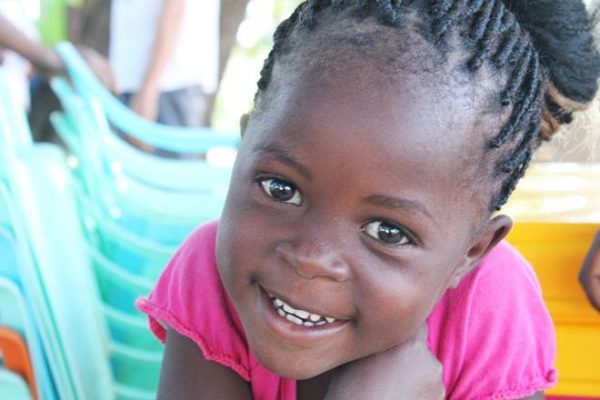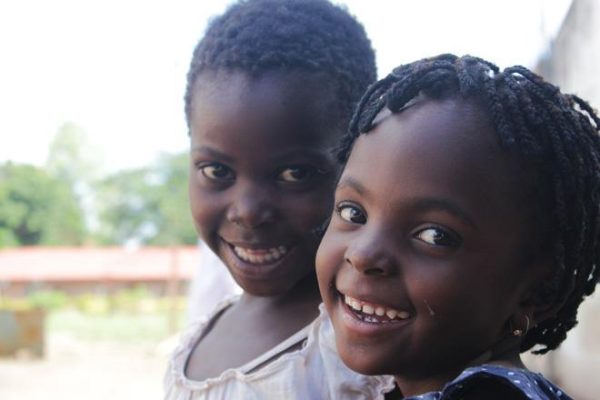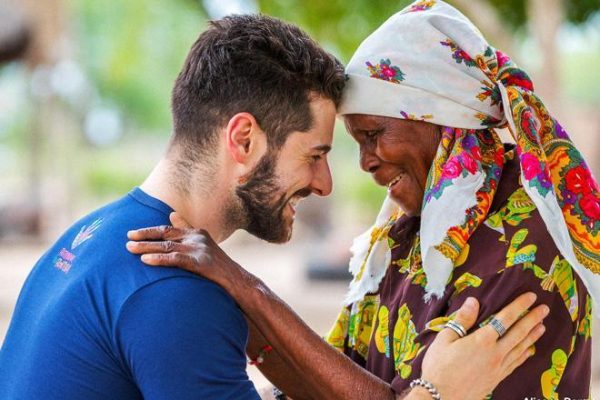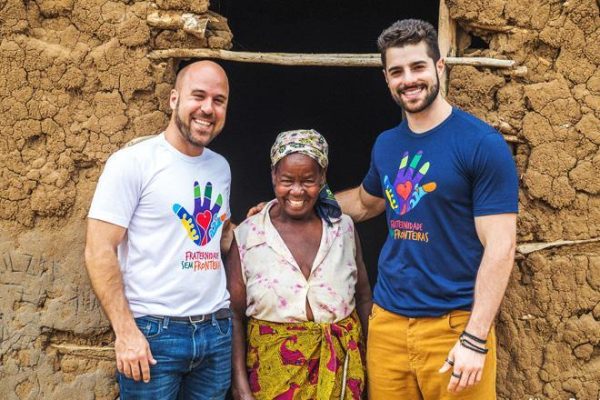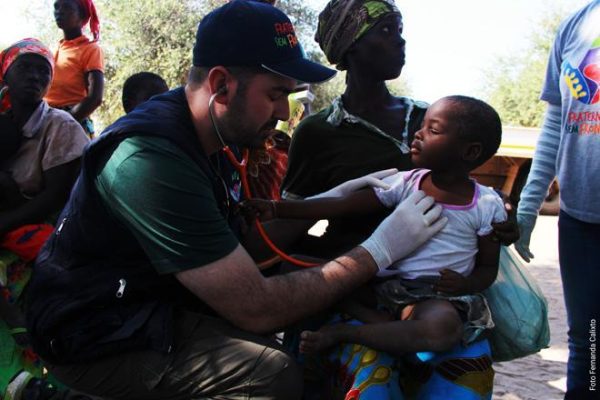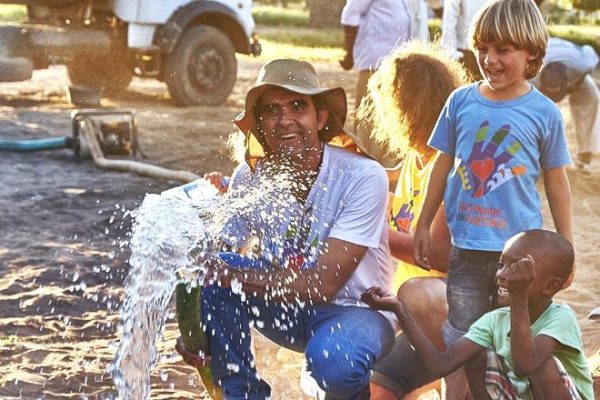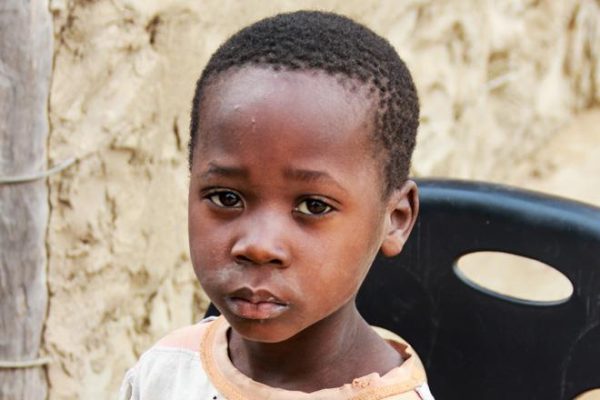THE REALITY THAT LED US THERE
Fraternity Without Borders runs community building projects to create sustainable change in Mozambique, one of the most economically underdeveloped countries in the world.
The people of Mozambique have been decimated by HIV, malaria and poverty. Over 1 million people suffer from hunger and consume contaminated water. In fact, it is common to go three days without food and to walk miles to collect liters of unsafe drinking water.
The most vulnerable are hungry, orphaned children who lost parents to HIV and malaria. They work in exchange of a plate of food and do not go to school.
Fraternity Without Borders is making a lasting impact. We address the orphans’ immediate needs and organize communities for permanent change. We house and feed the orphaned children, and we work to rebuild communities so there are opportunities now and for future generations.
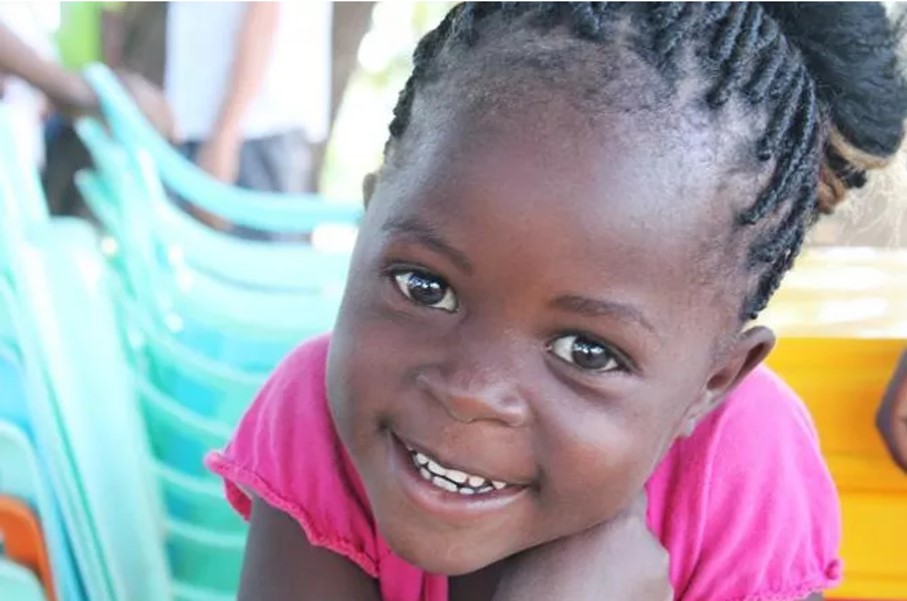
OUR REACH: SHELTERING
We maintain 24 Centers in Mozambican villages located within an area of 700 kilometers, from Barragem, near Maputo, to Chicualacuala on the border with Zimbabwe.
In Muzumuia village, we established our model structure for community centers. There is a kitchen, classrooms, bathrooms, a bakery, and rooms for vocational courses.
The goal is to use the same structure at all our community centers. In some units, we still need kitchens, bathrooms and rooms to provide suitable conditions for workers and shelter orphans.
Donate now to help us create change one community at a time.
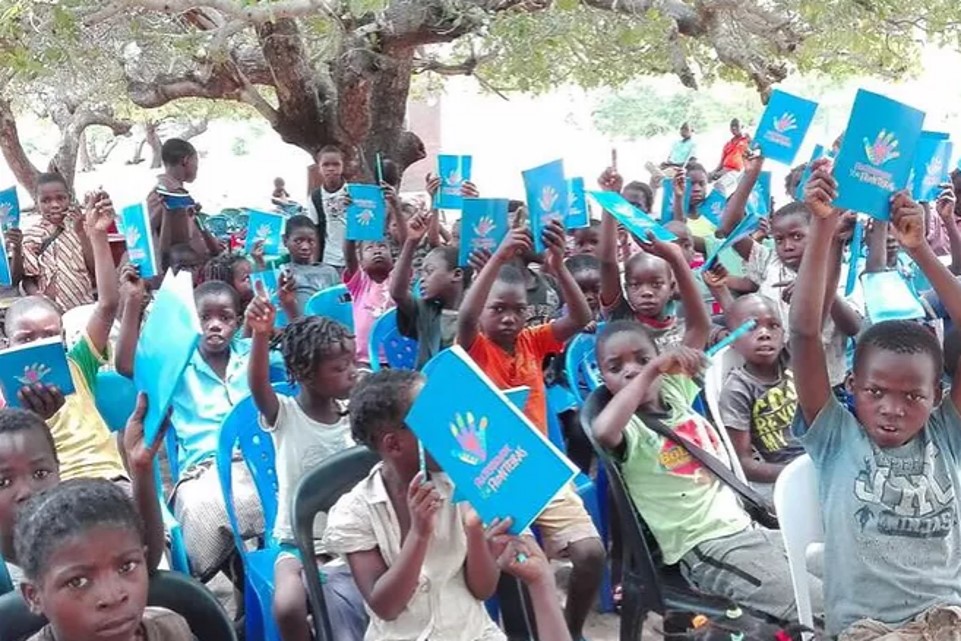
EDUCATION AND FRATERNITY - CHANGING CHILDREN'S LIVES
Fraternity Without Borders maintains shelters for children in extreme poverty in rural Mozambique. Most of the children who come to us have been orphaned by HIV.
The children are taken care of physically, emotionally and intellectually. FWB provides food, health care, guidance on personal hygience, schooling, vocational training, continuing education, recreational and cultural activities.
As members of our program, the children do not struggle to earn food, so they can attend school. Their lives have been transformed. They spend their free time at our Community Center where they participate in cultural activities when they are not in school.
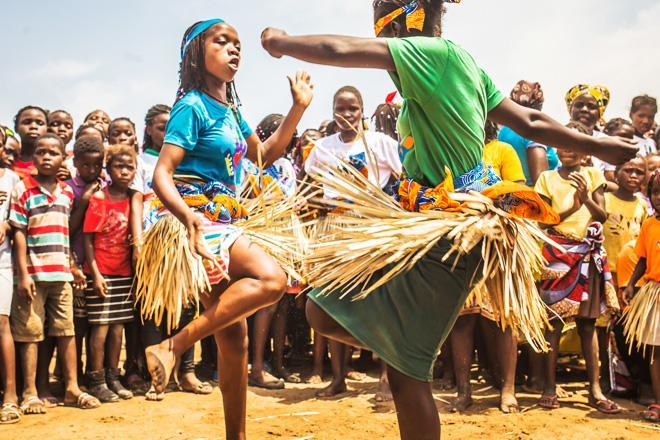
CULTURE
Dance and music are strong expressions of African culture. In the FWB Community Centers, art is as a source of joy. Children and young people form groups, rehearse choreographies, sing and perform. Their performance bring joy to communities.

STUDY FOR YOUNG PEOPLE
In addition to housing, FBW provides children’s school enrollment, schoool supplies and transportation.
Young people in rural Mozambique have limited educational opportunities, so to continue studying past sixth grade they need to travel to nearby cities. The first children in our project are now teenagers eager to continue their studies.
Especiosa Marge was one of the first children in our program. She is now a university student. Watch her testimonial to see how FWB has given her the freedom to pursue a promising future. Become a sponsor to ensure these children an education.
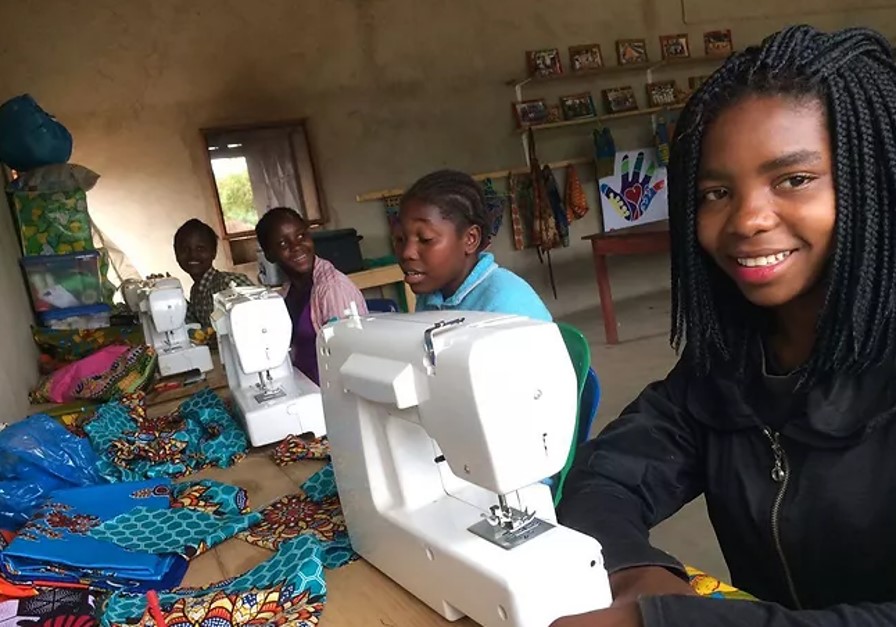
VOCATIONAL TRAINING AND EMPLOYMENT OPPORTUNITIES
FWB Centers create employment opportunities by hiring local workers to staff the Community Centers, including cooks, social educators and administrative assistants.
Vocational courses are fundamental for students to gain skills, self-esteem and confidence . Students learn agricultural skills, handicrafts with local materials, sewing skills, batik (fabric painting) and baking.
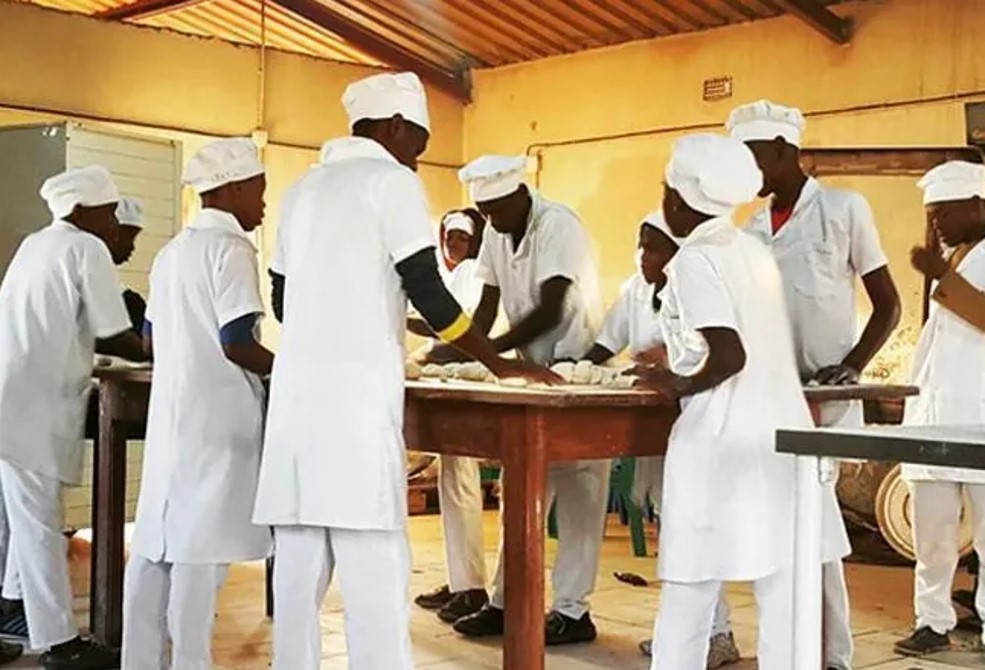
FWB'S BAKERY
With the help from supporters, we built a bakery in our Community Center at Muzumuia Village. The initiative generates work for adults, an opportunity for the community to access low-cost bread.
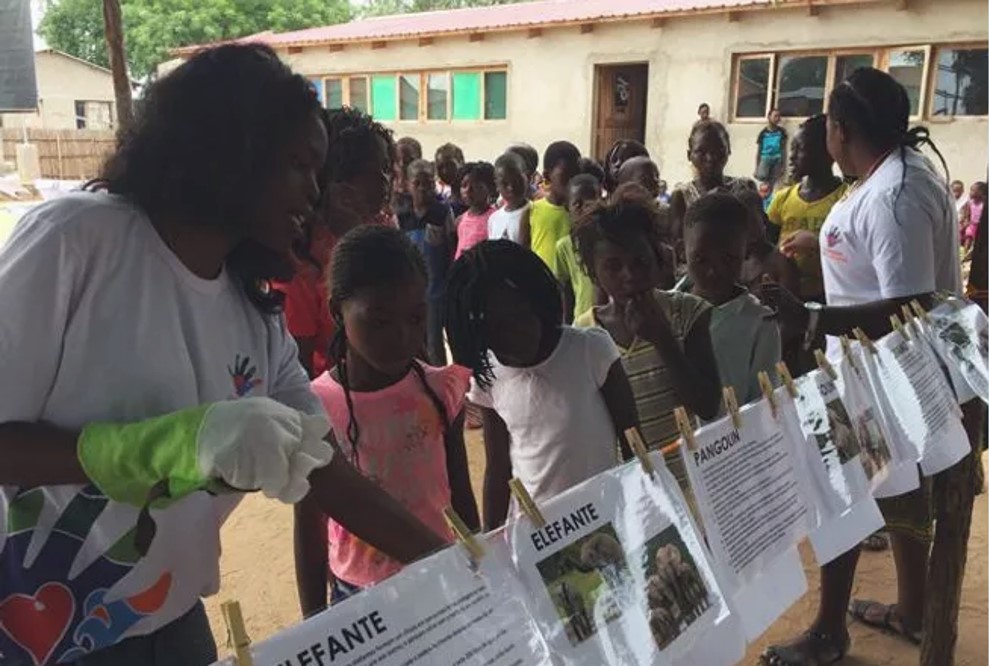
HIRED WORKERS
FWB hired local workers to attend the need of cooks, social educators, administrative assistants and other functions in the Community Center. Some people in the community are temporarily hired to work at the sheltering centers.
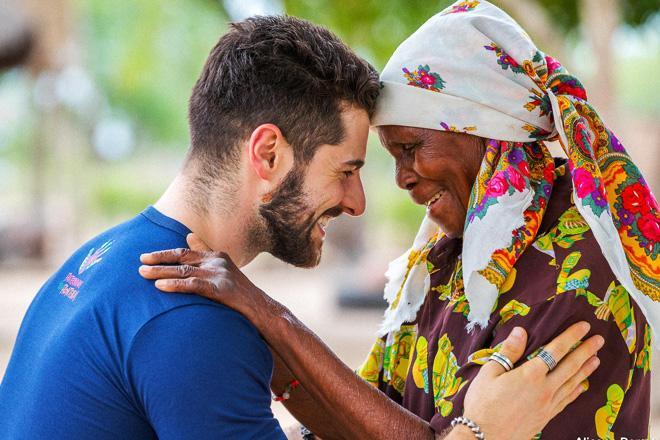
THE ELDERLY
Many elderly people live alone and have mobility issues in the villages. Fraternity Without Borders revitalizes communities with programs for the elderly. Young people build houses and deliver food to the aged and disabled.
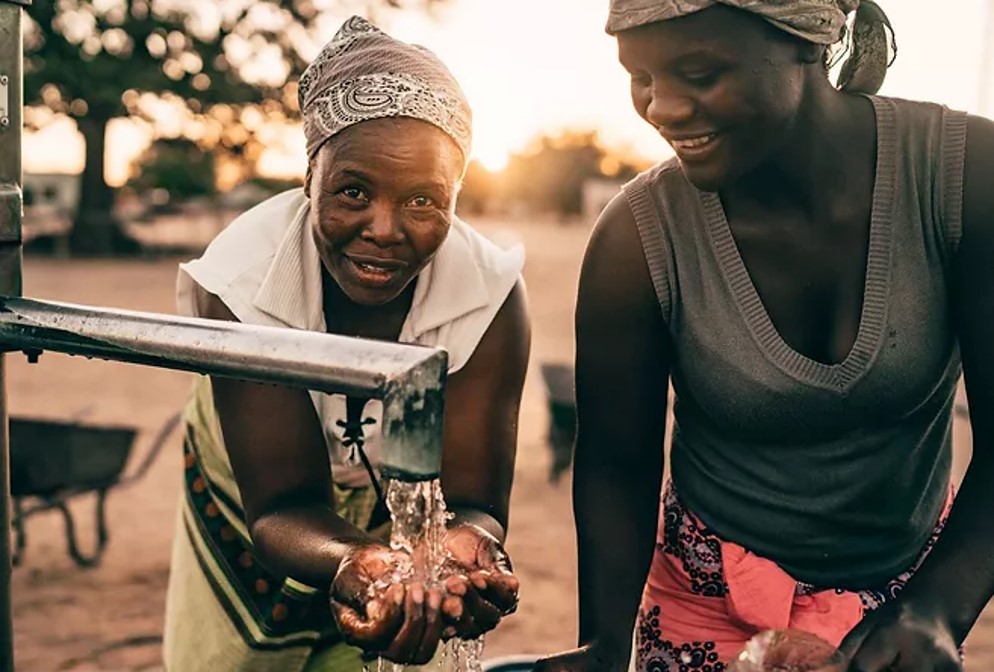
DRILLING WELLS TO PROVIDE CLEAN WATER
We drill water wells, which offer plentiful clean water to the communities. This has transformed women’s lives.
Mothers, with small children strapped to their backs, walk miles to the dry riverbanks to dig small wells to remove a few liters of unsafe water for their family needs.
When clean water becomes readily available, villages are not exposed to waterborne diseases and farming is successful. Women and girls are free to dedicate their time to education and work.

FARMING IN THE VILLAGES
Our water wells have spurred an agriculture pilot program that aims to make Muzumuia self-sufficient.
We have cultivated our first crop and used it to feed the children’s shelter. Young people and children participate in environmental education activities and learn agroecological techniques that can improve the resilience of the farming system.

SPONSORS OF THE CAUSE VISIT THE PROJECT
Fraternity Without Borders organizes humanitarian missions for sponsors, who pay for their own expenses to go to Mozambique to participate, learn and help in projects. Doctors, dentists, educators, artists, self-employed professionals and all sorts of volunteers come together to make an impact. Follow us on social media to hear their stories.

MODEL UNIT
We maintain 24 sheltering centres in the villages of Mozambique located within an area of 700 kilometers, going from Barragem, near Maputo, to Chicualacuala on the border with Zimbabwe.
In Muzumuia village, we implemented the model structure for the other community centers. There is a kitchen, classrooms, bathrooms, a bakery and rooms for vocational classes.
The goal is to use the same structure at all community centers. In some units, we still need kitchens, bathrooms and rooms, in order to provide suitable conditions and better conditions for workers and sheltered children.
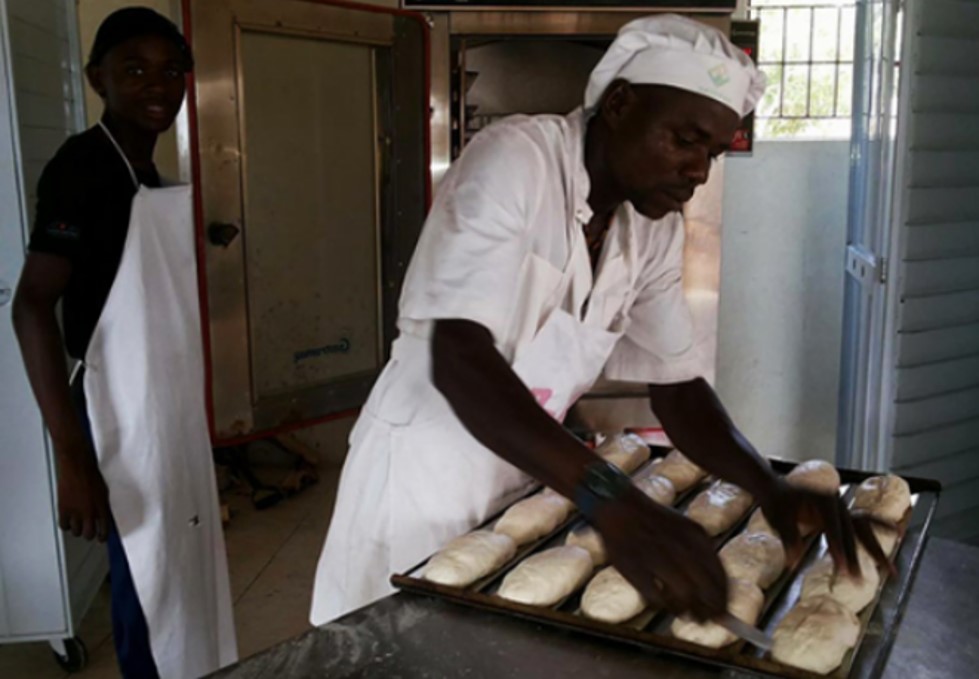
PILOT PROJECTS
At the model unit, in Muzumuia, pilot projects are developed with the possibility of expansion to other community centers.
Our pilot programs are volunteer initiatives including music, capoeira and distance learning classes.


